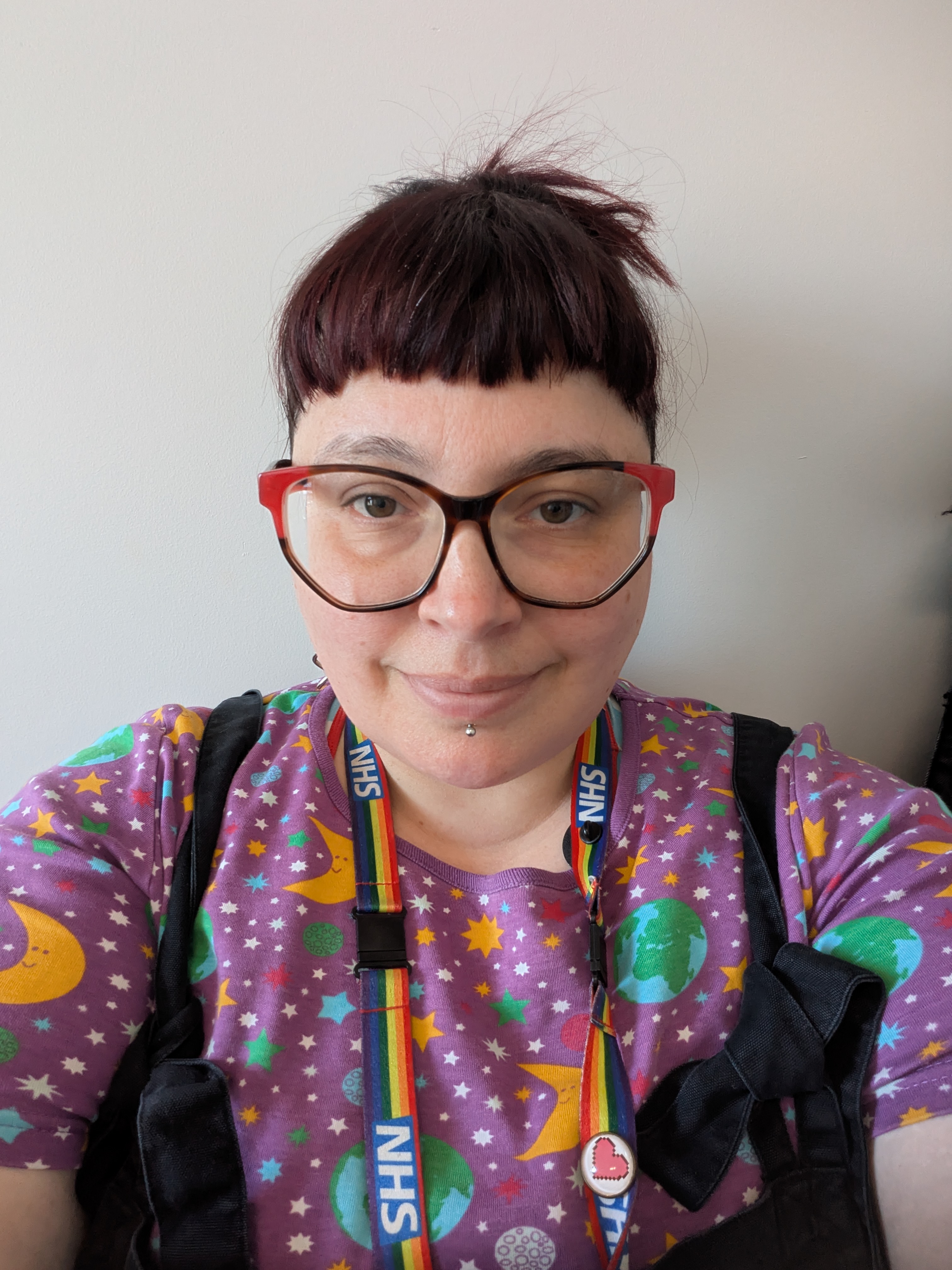Published on: 18 March 2025
As part of Neurodiversity Celebration Week (17 – 23 March 2025), an annual awareness week that celebrates and challenges stereotypes and misconceptions about neurological differences, Derbyshire Healthcare NHS Foundation Trust has spoken with a medical secretary about her experience of being neurodivergent. 
Around 15-20% of the UK population has a neurological difference. It is important to highlight the positives surrounding neurodivergent people and celebrate the unique strengths, talents and perspectives that come from thinking differently.
Sarah Hall-Williams, Medical Secretary for the Crisis Team at Derbyshire Healthcare, shares her experience of having Autism Spectrum Disorder and the impact this has had on her throughout her life.
Sarah said: “I was diagnosed with autism at the age of 40. I am now 46. For a long while I never thought much about how I was feeling – that it was ‘unusual’. After my diagnosis I felt relieved! It was so good to have an explanation for all the things that I had struggled with throughout my life such as school, relationships, work – everything! Before my diagnosis I felt like a failure but knowing it wasn’t all my fault made a huge difference.
“I found school difficult and before I came to work for the Trust, it was challenging to stay in work and because of this I have had a lot of different jobs over the years. I also have physical health issues which I have found very hard to manage and focus on.
“Until I had my son 11 years ago, who was very clearly autistic from a young age, I had very little insight about what autism was and how it affected people. To be honest, I just thought I wasn’t very good at things.”
People with Autism Spectrum Disorder (ASD) experience core difficulties which are common across the spectrum. These may include:
- Difficulty interpreting the behaviour and intentions of other people
- Intense interests
- A tendency for compulsive or repetitive behaviours
- Finding relationships challenging
- Finding changes to routines difficult
- Having trouble describing emotions
- Having difficulty with back-and-forth conversation.
Sarah said: “The main difficulties I have found are with change. When I am aware of impending changes, I can manage but sudden changes I find troubling. Concentration is a big challenge at times. However, once I fixate on things I can sometimes go down a bit of a ‘rabbit hole’ when researching.
“Too much noise can be overstimulating, so I spend a lot of time with my earplugs in, especially when I am out and about. Fortunately, I have a great office environment at work which is usually quiet, and my colleagues are fantastic. I can find conversations hard; I don’t always know when the right time is to speak, but after 40 years of masking, also known as learning to act neurotypical, I am much better socially. Although, it does take a lot out of me and I find social events very tiring.”
Autistic people offer a unique viewpoint on the world, which can often provide valuable insights and ideas, making autistic people exceptionally useful when sharing ideas within their area of interest.
Sarah has always been interested in research and has produced some fantastic work as a result of being so focused.
“Whilst I do spend a lot of time fixating on things, this also makes me an excellent researcher if I focus hyper fixations in the right direction. I am very detail focused and a quick reader. My brain is chaotic but there is a method to my madness and sometimes I can come at things from a different angle because of this.”
Sarah also has children with ADHD and autism of whom she celebrates their differences and encourages them to do so too.
“My children are brilliant, and I am so proud of them both. It can be very chaotic in our house and life can be challenging but we get there. My children are aged 11 and 8, they both need a lot of support at school and this has been a constant worry for me, but I advocate for support with their schooling.
“My 11-year-old is very much his own person; he has no worries about what other kids are into and I wish I could be like that. My daughter is 8 and a whirlwind. She is very loud and chaotic but also very creative and has the most amazing brain. Even with the struggles we have, I couldn’t imagine having neurotypical children.”
Sarah found value in seeking support to better understand herself and advises those who think they may be neurodivergent to do the same.
“I want people to know that you don’t need to hide your differences. Thinking differently can bring so much to the table, whether that’s at work or at home. I would encourage anyone who feels like they could be neurodivergent to look for support from their peers and learn what you can about neurodiversity.”
Vikki Ashton Taylor, Deputy Chief Executive/Chief Delivery Officer at Derbyshire Healthcare, said: “We are proud to have someone like Sarah who is brave enough to share her experience of autism during Neurodiversity Celebration Week. Her story is a powerful reminder of the unique strengths and perspectives that neurodivergent individuals bring to our communities.
“Through raising awareness, we can foster a greater understanding and acceptance, which is crucial for creating an inclusive workforce and community. Encouraging others to seek support ensures that everyone has access to the resources they need to thrive in their day-to-day life too. Together, we can build a world where neurodiversity is celebrated and valued.”
For more information on neurodevelopmental services and how local people can receive support through the service, please visit the Derbyshire Healthcare website.

